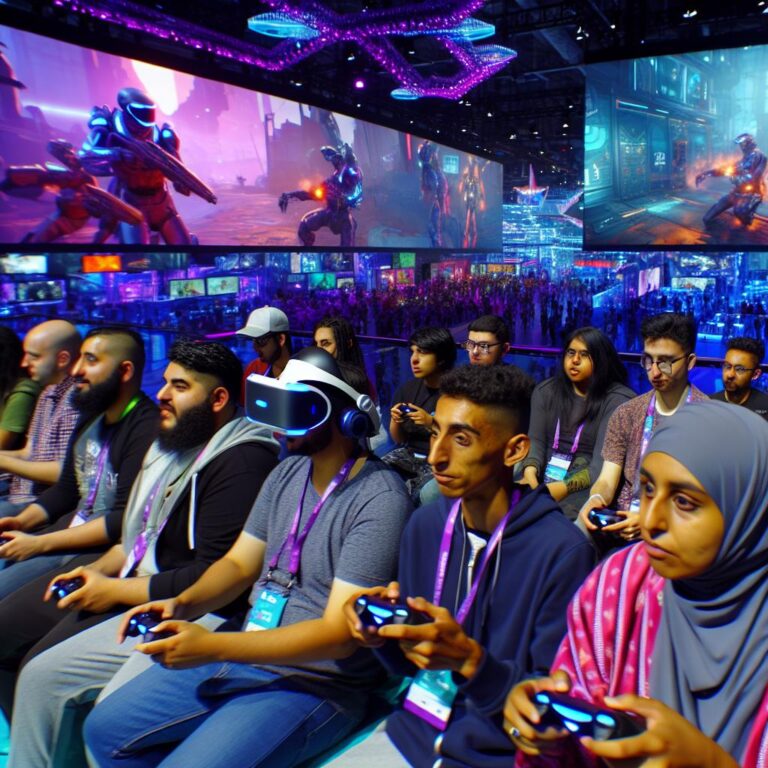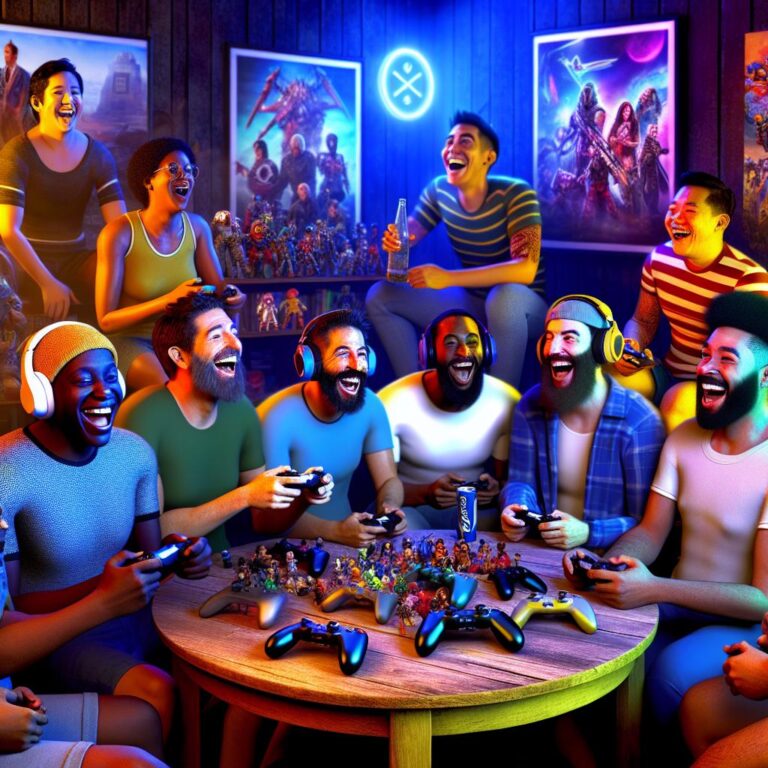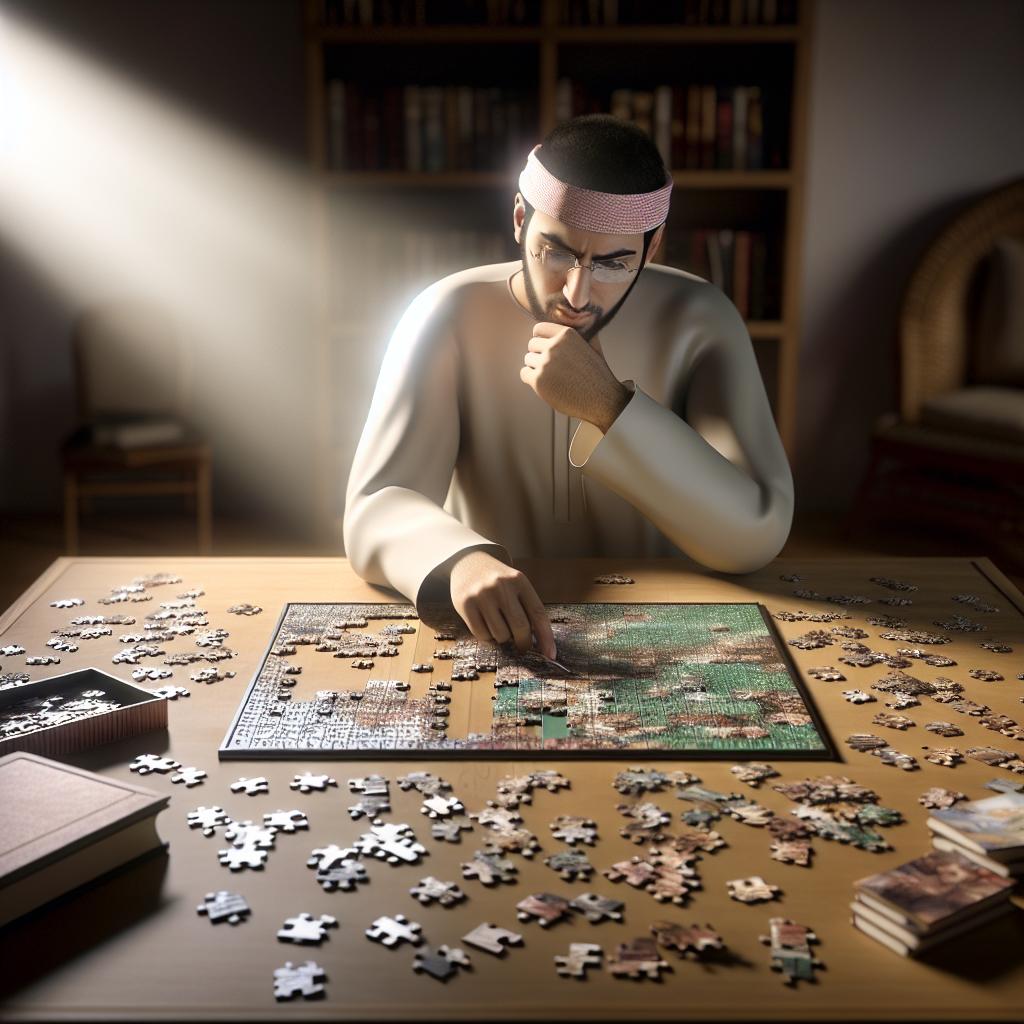
- Puzzle-solving strategies enhance game performance and personal growth, developing cognitive skills like critical thinking and resilience.
- Key strategies include process of elimination, pattern recognition, and breaking down puzzles into smaller parts.
- The online platform “Logic Puzzles” offers over 25,000 puzzles with features like hints, community forums, and mobile accessibility.
- Solving nonograms involves starting with filled rows/columns, marking blanks, leveraging overlaps, and utilizing community resources for advanced tips.
- Advanced KenKen strategies like identifying hidden sums and working backward from larger cages improve logical thinking and problem-solving.
- Engaging in puzzles fosters mental agility and strategic thinking, beneficial in real-life situations.
- Online communities and competitions enhance the puzzle-solving experience by providing motivation and the sharing of techniques.
Puzzle and logic games are like brain candy for mobile gaming enthusiasts. But why are they so hard to put down? I’m here to tell you why these games grip us with their fun challenges. I’ll even share puzzle-solving strategies to boost your gameplay. Whether you’re plugging away at a nonogram or tackling a KenKen, there’s much to explore. Ready to sharpen your gaming wits and dive deep into logic adventures? Let’s go!
How Can Puzzle Solving Strategies Enhance Your Experience?
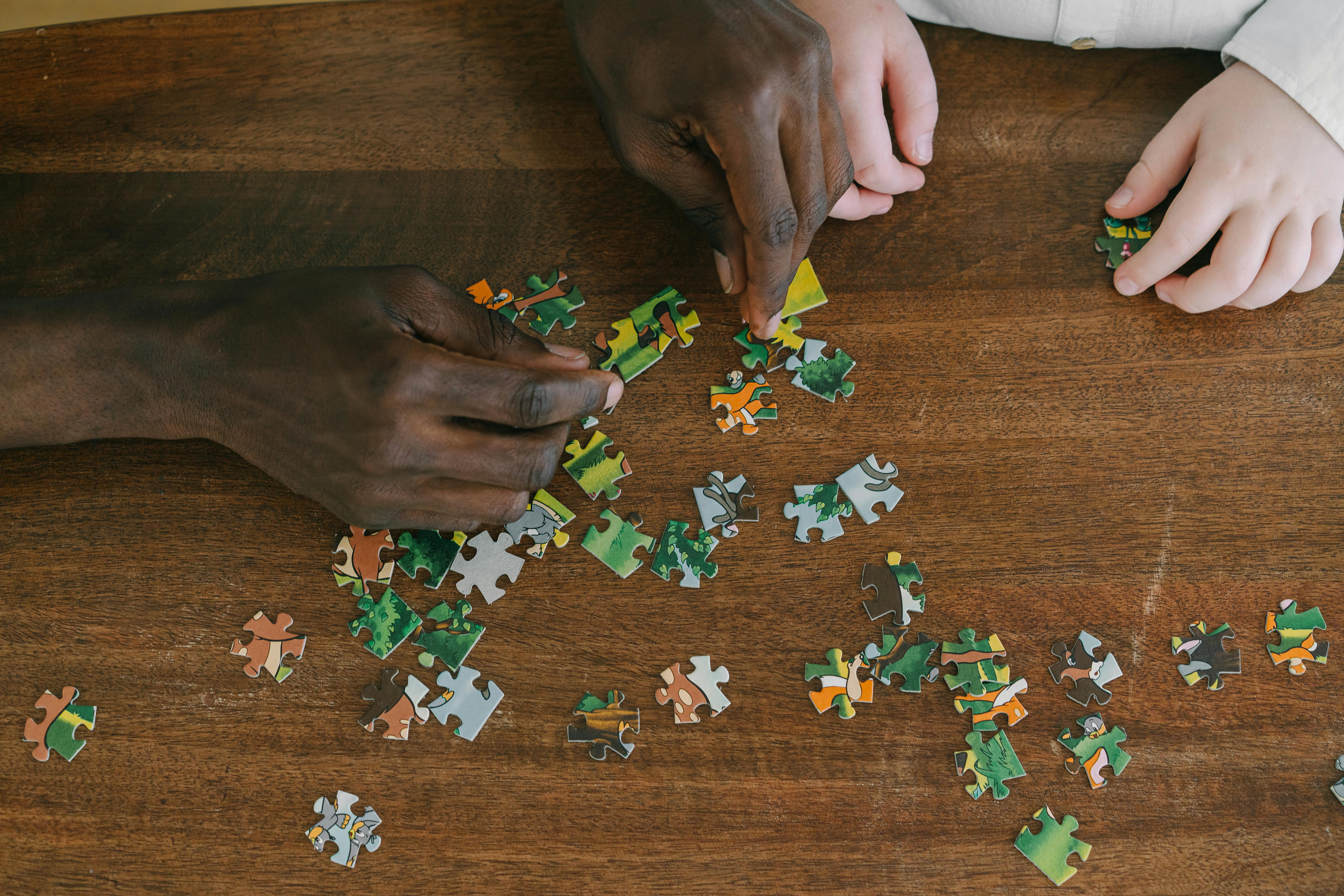
As a fan of logic games, I’ve often marveled at how puzzle solving strategies can turn a challenge into pure joy. You might think that solving a puzzle is all about staring at it until something clicks. But there’s a secret: using strategies can make the process both fun and successful.
Key Puzzle-Solving Strategies
Let’s dive into some key strategies for logic games. One simple yet powerful strategy is the process of elimination. You look at what cannot be, which helps you find what must be. It’s like clearing away clutter to see the hidden path.
Another is pattern recognition. This involves spotting repetitive or known patterns. Once you recognize a pattern, you can quickly fill parts of the puzzle. Patterns give you clues that simplify the entire game while boosting your confidence.
Also, breaking down a puzzle into smaller parts makes it less daunting. This is crucial for complex puzzles like crosswords or Sudoku, where many elements seem chaotic together.
Improving Game Performance
Wondering how these strategic approaches can improve your game performance? Let’s think about focus. Strategies help you channel your thoughts, keeping you centered. This way, your mind does not wander. When you practice focus, you train your brain to think clearly and act decisively.
Efficiency is another benefit. When you have clear strategies, you won’t waste time trying random solutions. You solve puzzles faster and more reliably. This helps whether you’re racing against the clock or simply trying to make the most of your game time.
When you tackle a puzzle with a plan, you also build resilience. Hitting a wall doesn’t end your game. You have different strategies in your toolkit to try again and again, making failure just a stepping stone.
Focusing on Developing Strategies
Why should players focus on developing these strategies? The answer is growth. Not only does mastering strategies improve your games, but it also develops your cognitive skills. Critical thinking, problem-solving, and logic skills grow stronger with each game.
Moreover, there’s the sheer satisfaction that comes from a solved puzzle. Winning feels good, but knowing you solved it with skill feels even better. This is crucial for enhancing personal growth and satisfaction.
Puzzle games also provide a great way to challenge friends. Imagine being part of the Logic Puzzle Hall of Fame, a community of people who love puzzles as much as you do. With clear strategies, you’re ready to compete and win.
Finally, being strategic in puzzles reflects onto real life. These games teach patience, planning, and precision. It’s not just about the game you’ll finish. It’s about the mental agility you will earn for life.
In summary, employing puzzle solving strategies not only enhances game performance but also enriches personal development. Whether you’re a casual player or a serious competitor, strategies are your allies on this endless journey of logic games.
What Are the Best Platforms for Online Logic Puzzles?
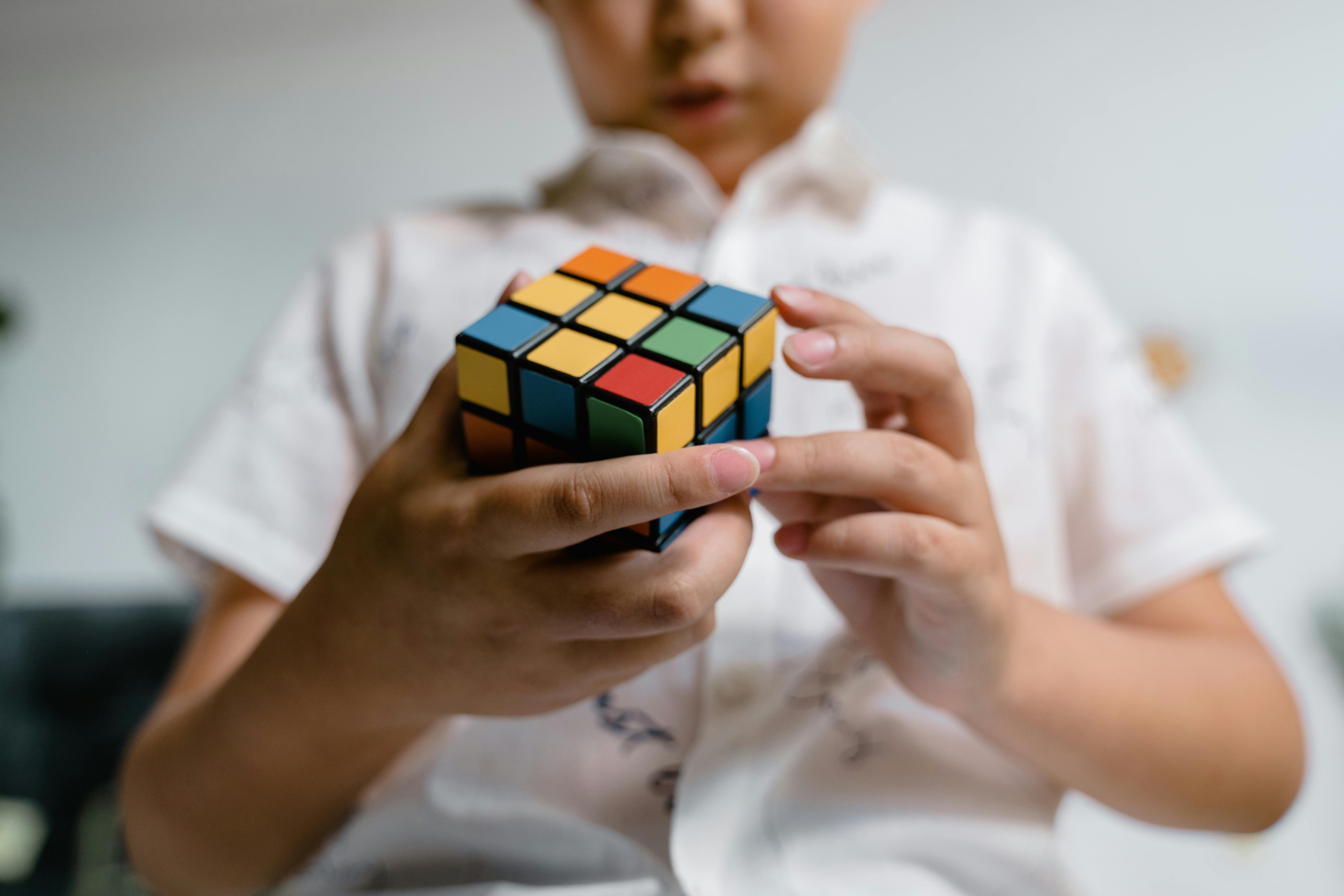
Puzzle lovers like me always hunt for new ways to test their skills. Some platforms stand out in this quest. Let’s dive into what makes Logic Puzzles so special.
Logic Puzzles is not just any puzzle platform. It’s the largest one globally for us puzzle fans. With over 25,000 puzzles, it offers endless fun and challenges. This vast number means you won’t run out of puzzles soon. The variety helps keep the experience fresh and exciting.
Online platforms differ in what they offer. So, how do platforms compare? Some focus on user experience, others on community. Logic Puzzles shines in both areas. It lets you solve puzzles in two ways: online or with paper. This flexibility is rare and caters to both tech-lovers and traditionalists.
For those who enjoy competing, there’s a social side too. By creating a free account, you can join contests with others. Competing with people all over the world adds a fun twist. The chance to enter the Logic Puzzle Hall of Fame makes things even more thrilling. It’s not just about solving puzzles; it’s about being the best.
Choosing a platform isn’t only about the number of puzzles. It’s also about how easy it is to use. The most user-friendly interface can make or break your experience. Logic Puzzles achieves this with a simple layout. It doesn’t clutter the screen with ads or pop-ups, letting you focus on what you love—solving puzzles.
Now, which features enhance puzzle-solving skills the most? Logic Puzzles offers several unique features. First, it provides clear puzzle instructions. Good instructions help you jump in without confusion. This is crucial for new users still learning the ropes.
Second, it offers hints and tips. We all get stuck sometimes. Hints save you from frustration and help you learn new tricks. This feature can turn a frustrating moment into a learning opportunity.
Features aside, community support is another key factor. A strong community creates a sense of belonging. Logic Puzzles has forums where enthusiasts share tips and tricks. This support helps newbies and experts alike grow more skillful.
Lastly, check the platform’s accessibility. Logic Puzzles works well on various devices. Whether on a computer or tablet, you get the same smooth experience. This accessibility is vital in today’s mobile world.
So, how do different platforms match up for puzzle enthusiasts? Some focus on one type of puzzle, while platforms, like Logic Puzzles, offer many. This variety appeals to a wide audience. You might start with simple puzzles and move to expert level as you improve.
User-friendly interfaces are another point of comparison. A clean, intuitive design keeps users coming back. This is especially true for newcomers who might feel intimidated at first. A platform like Logic Puzzles invites you to explore its depths without overwhelm.
Unique features, such as daily challenges or timed games, add layers of excitement. They make every visit unique and keep users engaged over time. This continuous engagement is what makes some platforms addictive.
In summary, the best platform for online logic puzzles excels in user experience, variety, and features. Logic Puzzles ticks these boxes with its vast collection, easy-to-use layout, and supportive community. It’s a paradise for puzzle enthusiasts craving endless challenges and growth.
Where Can You Find Nonogram Solving Tips and Tricks?
When I first discovered nonograms, they seemed like a coded mystery waiting to be solved. My curiosity turned into a passion, pushing me to hunt for effective methods to master nonogram puzzles. Finding reliable nonogram-solving tips is like unlocking a map to hidden treasure.
What are effective methods to master nonogram puzzles?
Start with the most filled rows or columns. This approach helps to map out a part of the puzzle quickly. Next, mark any definitive blank spaces. This will guide you to piece together other sections. Small wins in logical analysis make a huge difference here.
Look for overlapping clues. Imagine filling a row with ten squares and a clue that lets you place eight consecutive blocks. If another clue appears, the overlap gives important hints.
How can beginners quickly improve their nonogram solving abilities?
Beginners should keep it simple. Start with smaller grids. They help you grasp the basic patterns without feeling overwhelmed. Patterns repeat, and looking for them taps into an ability like pattern recognition. This will turn you into an efficient puzzle solver.
Use pencil and paper. Physically marking clues on paper reinforces their meaning. It’s easier to correct mistakes and envision solutions. Think of it as practicing handwriting before typing.
Don’t shy away from using online resources. Many websites offer puzzles along with hints. Begin here, then try tackling tougher puzzles after gaining confidence.
Are there resources available for advanced nonogram techniques?
Once you get comfortable, challenge yourself with complex puzzles. Quality resources give insights into advanced techniques. They teach strategies to manage larger grids and tricky patterns.
Books and online guides break down solving methods for more difficult nonogram puzzles. They offer clear examples, step-by-step, to help you level up your skills. This prepares you for the most daunting challenges.
Joining online forums is useful too. Sharing tips with others creates a supportive and informative community. You’ll find peers who’ve tackled similar puzzles and can offer new perspectives.
Remember, practice is key. The logic and pattern recognition needed for nonograms improve with each attempt. The sense of achievement after solving a difficult puzzle provides you with both a boost in confidence and skill.
And if you’re competitive like me, puzzle websites also offer leaderboards. Compete with other puzzle enthusiasts. Just imagine seeing your name among the top solvers and the thrill it provides.
In summary, whether you are learning the basic techniques or delving into advanced strategies, there are ample resources available, both in physical and digital formats. Engaging with these will not only enhance your skills but also provide a sense of community and accomplishment. Nonograms aren’t just puzzles; they’re a journey into the realm of logic and creativity.
How Do Advanced KenKen Strategies Improve Puzzle Solving?

When I first started playing KenKen, I focused on simple tactics. But soon, I wanted to excel, and that led me to seek advanced KenKen strategies. One lesser-known strategy is identifying hidden sums within the grid. Instead of just filling out the grid row by row or column by column, players can look for combinations of numbers that add up to a known total. This approach helps narrow down possibilities faster.
Another intriguing method involves working backward from larger cages. In KenKen, cages are groups of squares with a target number achieved through a specific operation (addition, subtraction, etc.). Larger cages often have fewer possible combinations, making them a good starting point. By solving these first, players can often deduct the correct placement for other numbers. This is because the grid becomes notably easier with fewer unknowns.
The utilization of puzzle-solving records offers profound insight, allowing players not just to learn from their mistakes but to analyze patterns and improve efficiency. By reviewing past errors, players can avoid old pitfalls and discover more efficient tactics.
One curious thing I found is that advanced strategies often differ significantly from basic techniques. Basic KenKen techniques mainly focus on straightforward filling and ensuring rules are met. On the contrary, advanced strategies require thinking outside the box. They delve into possibilities and demand more analytical skills than just filling in numbers.
The technique of “cross-hatching” is one such example. While beginners might focus solely on single numbers fitting within rows or columns, advanced players overlay multiple possibilities and eliminate impossibilities through cross-referencing. This is akin to playing a game of chess where one anticipates an opponent’s moves. Each number must fit harmoniously with neighboring numbers, adding another layer of consideration and strategy.
Many might wonder, “Can advanced KenKen strategies enhance logical thinking skills?” The answer is a resounding yes. These strategies train the brain to seek patterns and develop logical, yet flexible, thinking. By engaging in these puzzles, players sharpen their ability to see different angles of a problem, which is invaluable not just in games but in life.
Playing with advanced strategies increases the challenge and, effectively, the thrill of solving. Logical deduction becomes quicker, and the ability to see several steps ahead emerges. I’ve noticed that since employing these strategies, I am much quicker at solving not only puzzles but also everyday problems. The excitement and fulfillment of exceeding in such a complex game come from mastering new approaches and techniques.
Moreover, competing online or tracking one’s progress through structured platforms adds more depth. On platforms like the one from Logic Puzzles, one can immerse in a community of puzzle enthusiasts. By participating in competitions, players have the chance to get featured in the Hall of Fame, which provides additional motivation. Being part of such communities fosters the continuous acquisition of new methods and allows learning from others at a faster rate.
The shift from basic to advanced KenKen techniques means breaking through previous limits and redefining one’s thinking processes. When I chat with other players, a common theme we see is improvement not just in game performance, but in mental sharpness. Advanced KenKen forces players to adapt swiftly, teaching them to streamline decisions and sharpen focus.
Through continued engagement with advanced strategies, one finds a push toward mastery. Each puzzle becomes more than a pastime; it’s a test of growth and development. While the online space offers varied methods to play, I find immense value in the challenge and competition. It encourages players like myself to strategize, adapt, and emerge stronger, ready to solve ever more complex grids.
Ultimately, exploring KenKen with advanced strategies is an enriching endeavor. It’s more than learning techniques—it’s a gateway to bolstered cognitive prowess. And with so many puzzles available online, there’s limitless potential for growth and skill enhancement, making solving them a truly rewarding experience.
Conclusion
Puzzle-solving strategies sharpen your gaming experience and improve logic skills. We’ve discussed key strategies for logic games and explored the best platforms for online puzzles. We learned how nonogram tricks can boost your solving ability and how advanced KenKen techniques expand thinking. Embrace these puzzle-solving tips to skyrocket your performance. Aim to practice and explore new puzzles often. These strategies are more than game-changers—they sharpen your mind, making each puzzle more enjoyable and rewarding. Keep experimenting, and watch your skills grow, leading to more thrilling challenges ahead!


